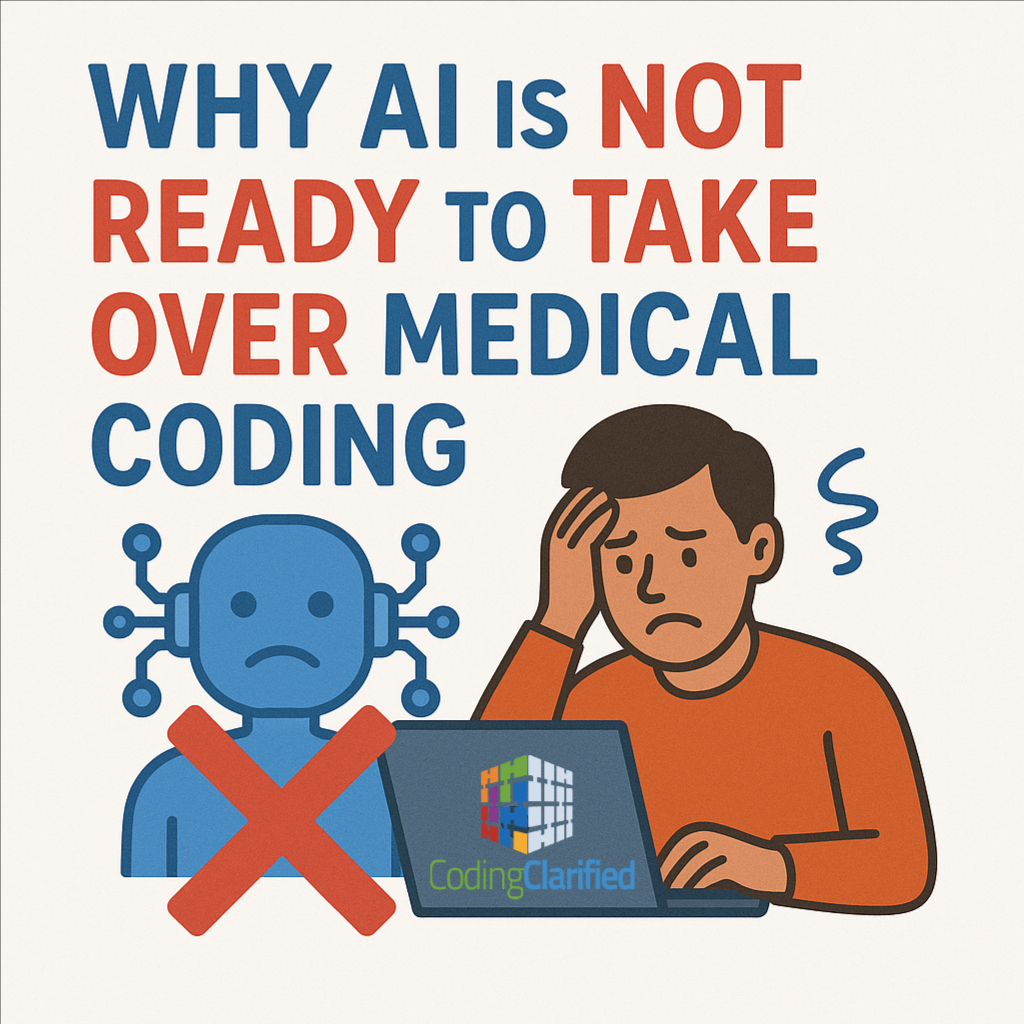Artificial intelligence (AI) has made incredible advances in healthcare technology, and medical coding is no exception. From natural language processing (NLP) that interprets physician notes to AI-assisted computer-assisted coding (CAC) software, the promise of automation is exciting. But while AI can be a powerful tool, it is not ready—and may never be fully ready—to replace human medical coders. Here’s why AI is not ready to take over all medical coding jobs.
Clinical Judgment Cannot Be Fully Automated
Medical coding is not just about picking a code from a book. Coders apply critical thinking when interpreting documentation, identifying missing information, and understanding the context of a patient’s care. AI tools rely on patterns in data, but they often struggle with:
-
Ambiguity in provider documentation.
-
Complex clinical scenarios with multiple comorbidities.
-
Understanding when clinical indicators support—or don’t support—a diagnosis.
This nuanced reasoning requires human judgment, especially in high-stakes areas like risk adjustment, compliance audits, and appeals.
Provider Documentation Is Often Imperfect
AI is only as strong as the documentation it processes. When notes are incomplete, contradictory, or unclear, AI cannot independently clarify the information. Human coders often query providers, reconcile inconsistencies, and ensure coding meets compliance standards. Without this human interaction, errors can increase—and that creates compliance risks for providers.
Evolving Coding Guidelines and Regulations
ICD-10-CM, CPT®, and HCPCS code sets are updated annually, and payer rules frequently change. AI systems must constantly be retrained to stay current. Human coders are better at quickly interpreting and applying new guidelines in real-time, while AI systems lag without proper updating.
Regulatory nuances like NCCI edits, payer policies, and LCD/NCD coverage decisions are areas where human expertise is still critical.
Accountability and Compliance Risks
Healthcare organizations face significant penalties for coding errors. If an AI tool miscodes a service, who is responsible—the coder, the facility, or the software vendor? Human coders not only catch these mistakes but also provide an audit trail of decision-making that AI cannot replicate with the same level of accountability and transparency.
Patient-Centered Context Matters
AI focuses on data patterns but does not understand the human side of patient care. Coders consider the bigger picture, such as:
-
Social determinants of health.
-
Severity of illness and risk of mortality scoring.
-
Clinical intent behind procedures.
This context ensures coding tells the complete story of the patient’s health journey—something AI is not yet equipped to do.
AI Is a Tool, Not a Replacement
AI excels when used as a coding assistant: speeding up chart reviews, suggesting code options, and reducing repetitive tasks. But coders must validate AI outputs, resolve discrepancies, and apply compliance knowledge. In this way, AI can enhance efficiency without replacing the critical thinking skills of trained professionals.
The Future of AI and Medical Coding
AI will continue to shape the future of coding, but it will serve as a partner rather than a replacement. Organizations that invest in both advanced AI tools and skilled coders will see the best results—improved efficiency, higher accuracy, and reduced compliance risk.
For coders, the future means learning to leverage AI effectively—staying educated, embracing technology, and focusing on the skills that machines cannot replicate: clinical reasoning, regulatory knowledge, and patient-centered judgment.
Bottom line: AI is powerful, but medical coders remain indispensable. The future of medical coding is not AI versus humans—it’s AI with humans.
The Future Role of Medical Coders:
-
Shift to Auditing:
Coders will transition to more of an auditing role, reviewing AI-generated codes and intervening when necessary.
-
Emphasis on Soft Skills:
The role will increasingly require advanced soft skills, such as attention to detail, adaptability, critical thinking, and strong communication.
-
Collaboration with AI:Successful coders will be those who can seamlessly integrate AI tools into their workflow, leveraging human expertise with AI capabilities.
Related articles
Coding Clarified
Will AI Take Over Medical Coding
AAPC

